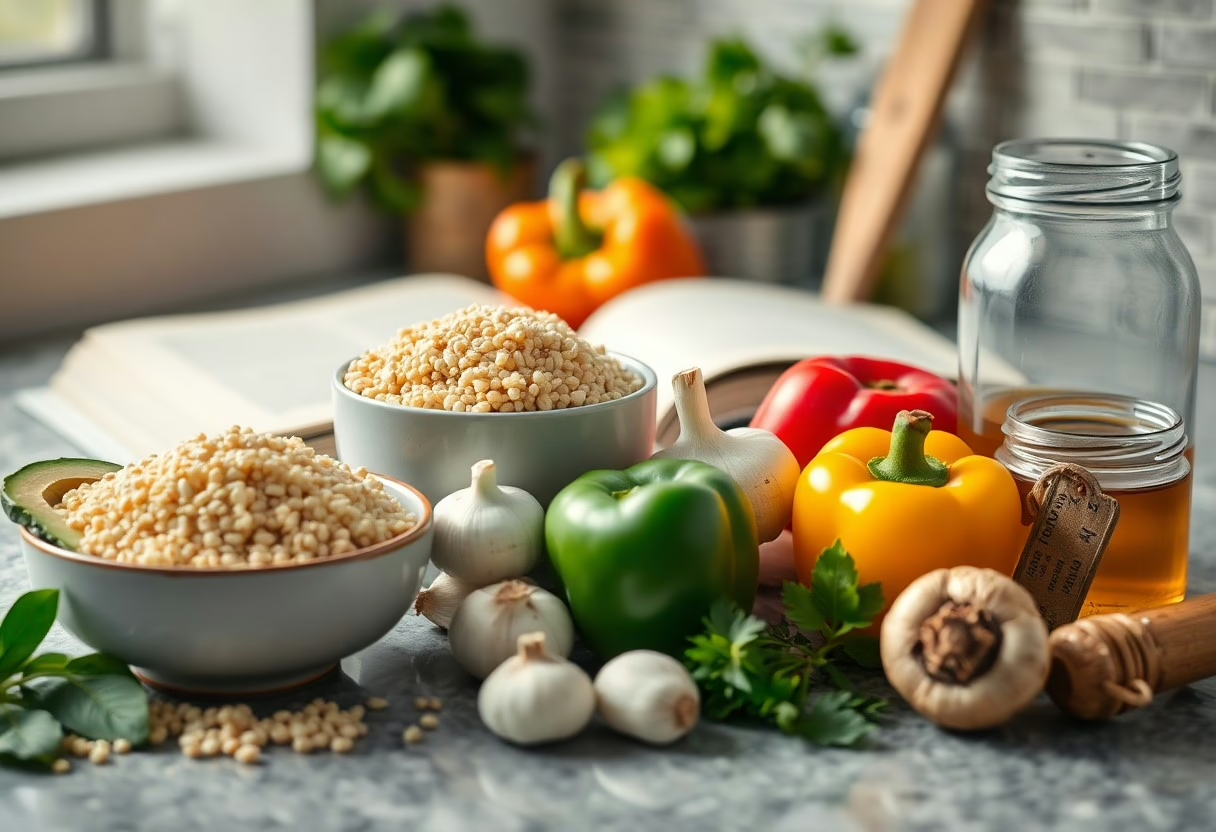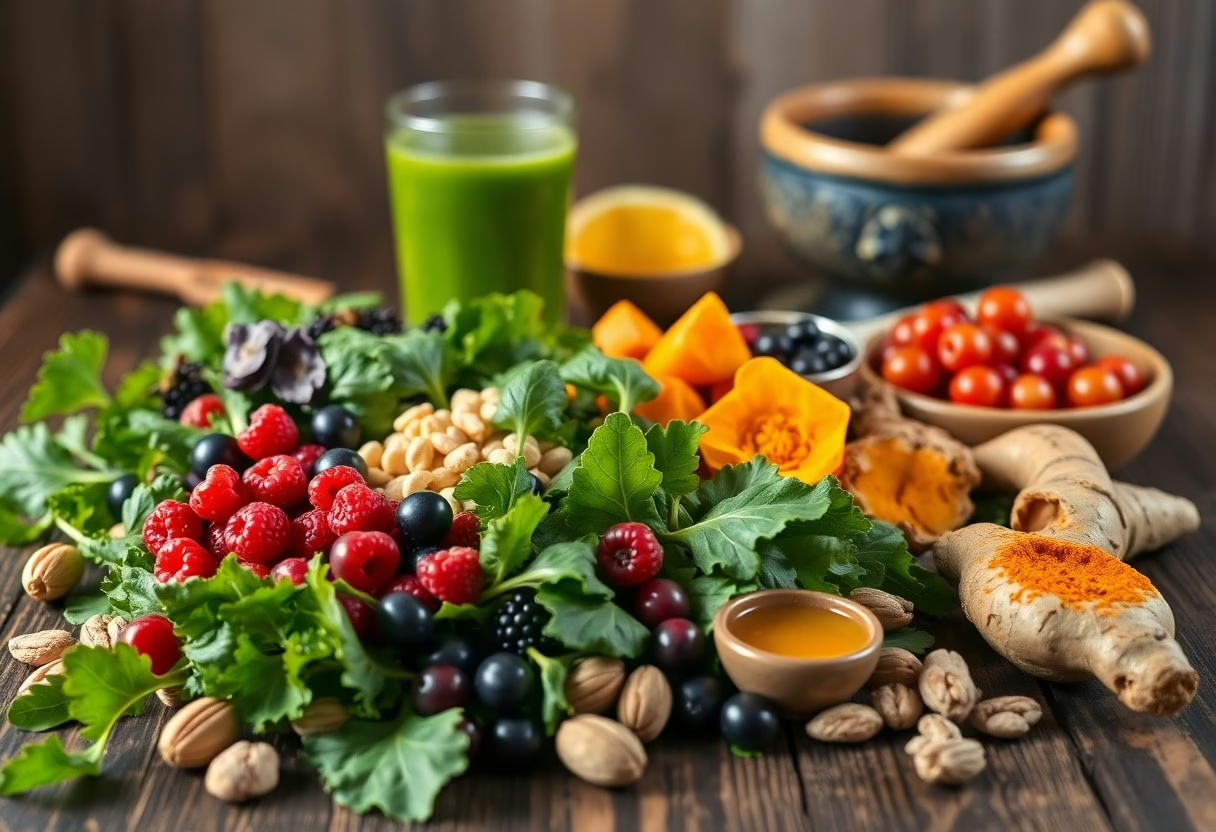You can transform your health by harnessing the power of nutrition as medicine. By understanding how specific foods affect your body, you can make informed choices that promote healing and well-being. This guide will provide practical insights into healing foods, helping you effectively integrate them into your daily diet.

The Biochemistry of Healing Foods
Understanding the biochemical processes of healing foods reveals their profound impact on your health. Each nutrient plays a specific role, influencing cellular functions, metabolic pathways, and gene expression. When you consume foods rich in vitamins, minerals, and bioactive compounds, they interact with your body’s physiology, modulating inflammation, supporting immune function, and improving metabolic health. This relationship underscores why choosing whole, nutrient-dense foods is important for optimal health. Nutrient profiling allows you to discern healing capabilities of various foods by analyzing their composition. This method categorizes foods based on nutrient density—vitamins, minerals, and beneficial compounds relative to calorie content. By focusing on nutrient-dense choices like leafy greens, berries, and nuts, you maximize intake of biologically active compounds that promote wellness and prevent disease. Antioxidants and phytochemicals are natural compounds in fruits and vegetables that contribute to disease prevention. They neutralize free radicals, reduce oxidative stress, and lower chronic disease risk. Flavonoids in berries support heart health, while carotenoids in carrots boost vision. Consuming colorful, plant-based foods ensures you receive protective compounds that enhance resilience against cancer, heart disease, and diabetes. Research highlights the significant impact of antioxidant-rich foods on health. Studies show individuals consuming higher quantities of fruits and vegetables display lower chronic disease rates.
Foods That Pack a Punch: Nature’s Pharmacy
Nature offers foods that serve as potent health allies. These healing foods are rich in vitamins, minerals, and antioxidants that combat illness, reduce inflammation, and boost immune systems. Incorporating nutrient-dense options into daily diets enhances overall well-being and vitality. Superfoods are nutritional powerhouses packed with vitamins, minerals, and antioxidants providing extensive health benefits. Foods like blueberries, quinoa, and kale distinguish themselves through high nutrient density and positive body effects. Regular superfood consumption enhances energy levels and supports vital bodily functions. Common kitchen staples often have extraordinary healing properties. Ingredients like garlic, ginger, and turmeric are flavorful while possessing anti-inflammatory and antimicrobial effects. Garlic supports cardiovascular health by reducing blood pressure and cholesterol levels, while ginger aids digestion and reduces nausea. Turmeric, renowned for curcumin, offers powerful anti-inflammatory benefits and supports joint health. By incorporating these healing ingredients into cooking, you leverage their medicinal properties effortlessly.
Crafting Your Healing Plate: Practical Meal Strategies
Creating nourishing meals involves thoughtful combinations of various food groups. Start by incorporating nutrient-dense ingredients that align with health goals, ensuring your plate is colorful and inviting. Focus on whole foods while emphasizing seasonal produce, lean proteins, whole grains, and healthy fats. To build balanced meals, fill half your plate with colorful vegetables and fruits, one-quarter with lean proteins like fish or legumes, and the remaining quarter with whole grains such as quinoa or brown rice. Incorporate healthy fats from sources like avocados or nuts to enhance nutrient absorption and maintain satiation. Eating diverse foods ensures adequate nutrient intake while keeping meals exciting and flavorful. Meal prepping streamlines your healing food journey by providing convenient, ready-to-eat options. Plan weekly meals focusing on recipes incorporating healing ingredients. Batch cooking grains, proteins, and vegetables allows quick assembly during busy days. Use clear containers to portion meals, making it simple to grab and go while sticking to nutrition goals. Meal prepping saves time while encouraging mindful eating habits by reducing likelihood of reaching for unhealthy convenience foods.
The Mind-Body Connection: Nutrition and Mental Health
Your dietary choices significantly impact mental health, shaping mood stability and cognitive function. Nutrient-rich foods bolster neurotransmitter production, directly affecting happiness and well-being. Omega-3 fatty acids in fish and walnuts show promise in reducing depression symptoms, while antioxidant-rich diets from berries and leafy greens combat oxidative stress contributing to mental decline. Integrating these foods into daily routines enhances mental clarity and emotional resilience.
Personalizing Nutrition: Tailoring Healing Foods to Your Needs
Healing nutrition is not one-size-fits-all. Your unique health goals, lifestyle, and preferences play vital roles in determining beneficial foods. By understanding your body’s specific requirements and how foods affect you, you can create personalized nutrition plans promoting optimal health. Your lifestyle greatly influences nutritional needs. Active individuals may require more protein and carbohydrates to fuel energy levels, while sedentary routines benefit from nutrient-dense foods providing essential vitamins without excess calories. Dietary restrictions can shape your healing journey significantly, as allergens or intolerances may limit food choices. Customizing nutrition to accommodate restrictions involves selecting alternative healing foods providing similar benefits. If lactose intolerant, opt for calcium-rich greens or fortified plant-based milks to meet nutritional needs. Navigate dietary restrictions by exploring substitutes that mimic essential nutrients of avoided foods. Gluten-free grains like quinoa and brown rice replace traditional grains while offering fiber and protein. Incorporating colorful fruits and vegetables ensures broad vitamin intake, while legumes and nuts provide healthy fats and proteins aligning with healing goals.
Conclusion
You can significantly enhance well-being by embracing healing foods in daily nutrition. Understanding how nutrients affect your body empowers informed choices that prevent illness and promote recovery. Incorporating whole, nutrient-dense foods nourishes your body while serving as proactive health management. You have the ability to utilize nutrition as medicine, enhancing quality of life through mindful eating habits.


